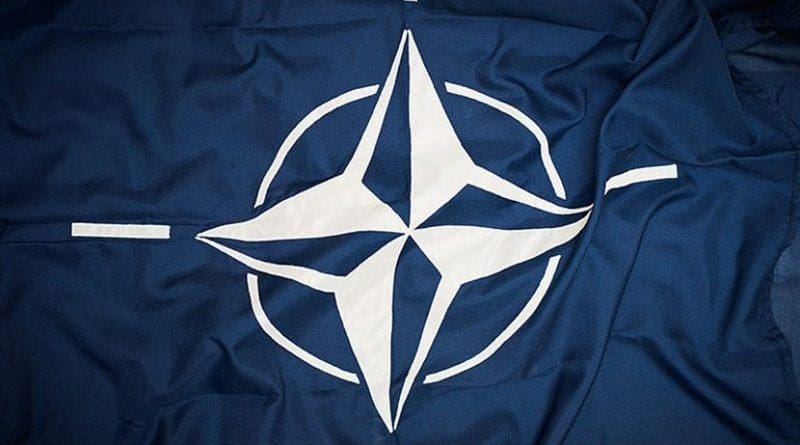NATO Vital To Europe Despite Its Recent Troubles – OpEd
By Arab News
By Chris Doyle*
As the world’s largest and most powerful military alliance marks its 70th anniversary, it is timely to assess how relevant it remains and how the broader public perceives it.
The North Atlantic Treaty Organization (NATO) came into being on April 4, 1949. Its mission then was clearer: To develop a coherent alliance to confront the expanding power and ambitions of the Soviet Union (USSR). It was a creature of both the post-Second World War and Cold War environments.
Yet, in 2019, it does not seem to warm the hearts of citizens of its member states. The US is the central pillar of NATO, yet a YouGov poll conducted for the anniversary indicates only 44 percent support the US role in the alliance. This is down 3 percent from the previous year. Clearly, when President Donald Trump bashes NATO, as he does with gusto, he is in tune with much of his core support. Democrats tend to be more pro-NATO. Congress remains steadfast in its support for NATO. But it is the younger generations of Americans, especially millennials, who have lost faith.
Key European nations show greater levels of support for NATO, although this is not overwhelming. In Britain, support according to the same poll is around 59 percent, but this represents a fall from 73 percent over the previous year. The government is solidly in favor, but the opposition leader, Jeremy Corbyn, loathes NATO. In Germany, support dropped from 68 percent to 54 percent. In France, always one of the more nervous NATO actors, the backing for NATO is only at 39 percent. The French have historically been suspicious of American dominance. European and American citizens have grown a little too accustomed to the absence of war and take their security for granted.
Why this drop in support for an alliance that ultimately did protect Western Europe and hold the Soviet Union at bay? It has struggled to corral public opinion in its favor. The collapse of the USSR, the end of the Warsaw Pact and the subsequent reunification of Germany deprived the alliance of its founding raison d’etre.
Ever since then, it has struggled to demonstrate a clear and settled purpose. Many queried why it was NATO that took command of the International Security Assistance Force in Afghanistan in 2003. This was not an area of the world NATO traditionally focused on. The same could be said for Somalia and the Balkans.
Russia still presents the clearest state threat to NATO interests. Vladimir Putin enjoys ratcheting up the temperature in Ukraine, the Baltic states and the Black Sea. Russian military planes regularly test the defense awareness of the UK, with bombers breaching British airspace.
Russia has resurfaced as a significant threat but, in the long run, most watch China’s resurgence as a major global power with greater alarm. Will NATO be ready and willing to address this?
Back in 1949, NATO was an alliance of just a dozen states. Today, it has 29 members, soon to be 30 when North Macedonia joins. Seven out of eight former Warsaw Pact members are now part of NATO. This has implications for an organization that proudly boasts that an attack against one is an attack against all, as enshrined in Article 5 of the treaty. Bluntly, the US public might be persuaded to defend key Western European allies, but would they be so keen on coming to Turkey’s rescue? Moreover, just as happened with the expansion of the EU, NATO’s decision-making process, which requires unanimous approval, is cumbersome rather than swift and decisive.
Turkey is far from content. President Recep Tayyip Erdogan has opted to purchase the Russian S-400 air defense system, which risks the unity of the alliance. The US and others are clear this cannot be permitted, as it could lead to Russia accessing key technical data from NATO weapons systems.
The US has complained about unfair “burden sharing” for years, even as far back as President John F. Kennedy. NATO members are meant to spend 2 percent of their gross domestic product (GDP) on defense, yet currently only eight do. Trump has escalated this pressure to new levels, particularly with Germany in his sights, as it limply only spends 1.24 percent of GDP on defense. He will not have been impressed with the YouGov poll showing that Germans would not be prepared to defend the US if Russia attacked it.
Despite all the public criticism, the US under Trump is not backing away. US spending on European defense has increased and, only in the autumn, NATO held its largest military exercise since the end of the Cold War.
What is truly lacking, however, is any semblance of American leadership, resulting in a vacuum at the heart of the alliance. As the sudden decision to pull US troops out of Syria highlighted, Trump does not consult with allies. This resulted in the resignation of then-US Defense Secretary James Mattis last year. Were the alliance to face a major political and military crisis, how Trump would react would be a complete unknown.
But, for European states, NATO is the only viable defense option. Talk of a European army is unicorn territory despite President Emmanuel Macron of France’s ill-advised remarks that one is needed to “protect ourselves against China, Russia and even the United States.” US military muscle is vital for European security and that is not going to change, even if the politics and diplomacy will be hit hard by Trumpian turbulence.
- Chris Doyle is director of the London-based Council for Arab-British Understanding (CAABU). Twitter: @Doylech

